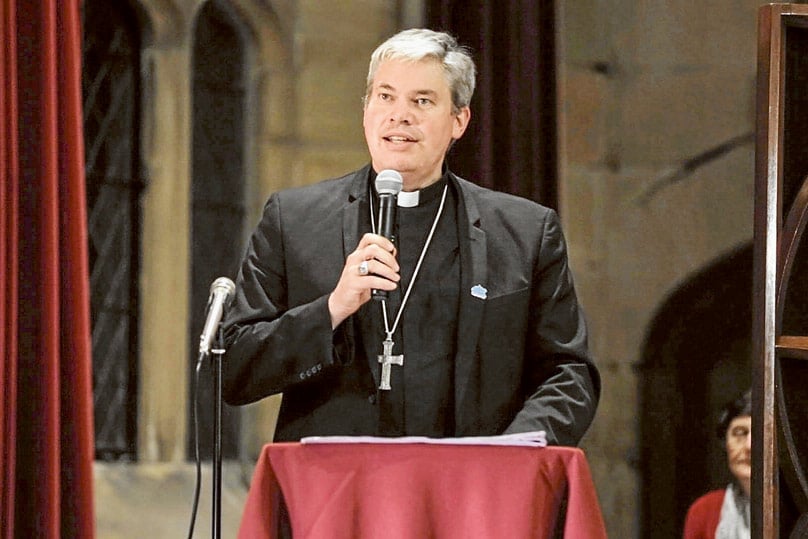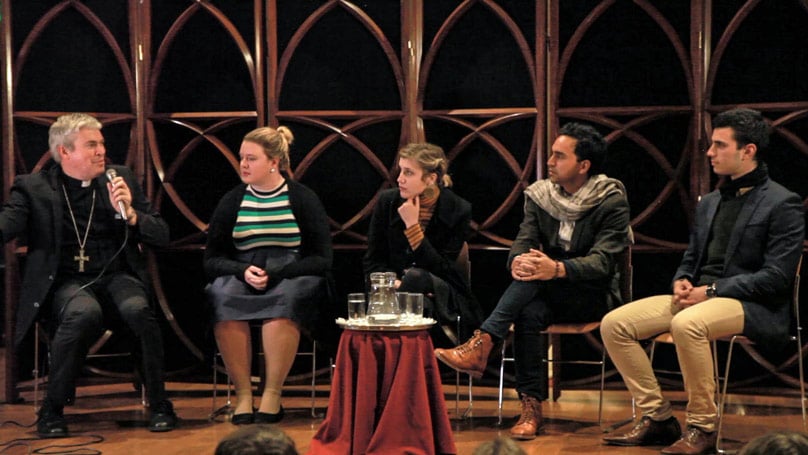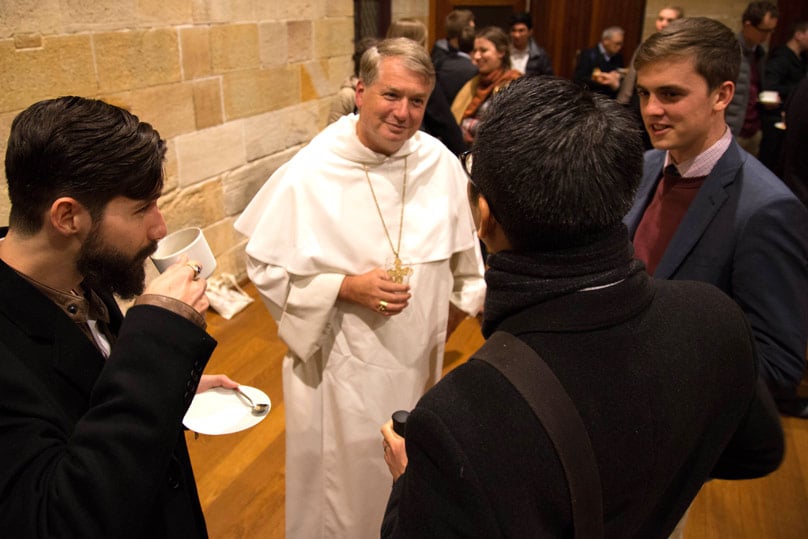
When a young Anthony Fisher attended his first lecture in 1978, the lecturer made it known in no uncertain terms exactly how he felt about people with “pre-scientific ideas”: that they were “incapable of doing science” and should withdraw from the course immediately.
It was a memory Archbishop Anthony Fisher OP shared with around 80 people who had turned out on 29 June for the inaugural talk of the ‘Scholarship at the Cathedral’ series in the Chapter Hall of St Mary’s Cathedral (visit xt3 for audio).
The Archbishop said that it would have been helpful during his university years if something like the Scholarship at the Cathedral series, a range of speaking events on issues central to young Catholic adults, particularly those of an academic bent, had been available.
Bishop Richard Umbers got the ball rolling with introductory remarks on the perilous state of discourse in Australia, spring boarding off recent media reports revealing that ‘no religion’ had eclipsed ‘Catholic’ for the first time in census history (30.1 per cent to 22.6 per cent).

Bishop Umbers said that he was very concerned about the general standard of intellectual and cultural life in Sydney and hoped that the ‘Scholarship’ initiative might eventually blossom into a community of scholars.
“It can seem a lonely world at times when you’re living the faith, especially in the academy but also when you graduate and start work,” Bishop Umbers said.
“It’s my hope that through intellectual engagement, we can promote young intellectual scholars that will be able to build up momentum in that regard, providing something that you’d be comfortable bringing friends to, for them to be challenged.”
Bishop Umbers referred to the words of an 18-year-old Catholic school graduate in a Sydney newspaper, who said that he had gone through schooling and a sacramental programme without ever believing in God, and that he preferred science as it “just made sense”.

“It’s amazing that someone who’s received a so-called Catholic education would think that there’s somehow no connection between the modern world – our understanding of ‘how’ – and centuries and millennia of answers about the ‘why’, and that somehow within a Catholic education that was never addressed, or at least seemingly not to that person’s satisfaction,” the bishop said.
He also spoke about an increasingly secular society’s growing problem with “heresy”:
“We are religious beings. We all have a stance before the transcendent.
“You might be asking, ‘Well, this is a secular state; what’s heresy got to do with that?’
“Anyone who has read a Chesterton book will know this: We all have dogmas. The problem is when people don’t recognise that they have dogmas – when they don’t recognise that they’re not neutral.
“At least as Catholics we’re pretty upfront about the fact that we have dogmatic belief. But others are not so clear about it, even though there’s now [effectively] only one right way of approaching a particular issue.
“And we see that in areas in which even five years ago [people] may have had a different view. You could think about that with regards, for example, to marriage equality. Is there any other view available? Not from a rational person there isn’t – not in our society …
“In terms of transgender issues, is there any other view except for the one where we say ‘It’s all good’? …
“There’s an issue of heresy. When you hold a different view are you going to be listened to? Can it be maintained in a way that is respected as rational? And increasingly the answer is no. And that creates difficulties for us as well.”
A panel of four young adults – Brigid Meney, Caitlin West, Nic Zumaran and Nick Augimeri – most of them post-graduate students, then gave their experiences and thoughts on what it was like to be Catholic at university, including on how their friends reacted to their Catholicity.
One panellist said she struggled to speak with friends about serious issues because of their flippancy towards ideas that are not presently dominant, and because of their tendency to rely only on their emotions.
Another panellist lamented the standard of learning in his present course at a sandstone university, having last year graduated from a small liberal arts college.
Another panellist said that she did not think mainstream tertiary institutions were “too far gone” after largely positive experiences at university.
The next event will be held in September on the relationship between faith and science.
